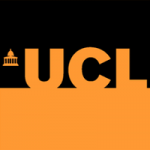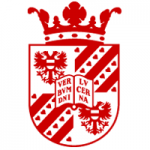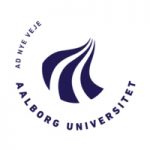项目介绍
Overview
The UCL School of Slavonic and East European Studies (SSEES) is UK’s largest institution for research and teaching on Russia, the Baltics, and Central, East and South-East Europe. The school’s mission is to foster cross-disciplinary approaches to area studies, using expertise in our primary geographical region to generate knowledge and understanding of the broader world. With our spectacular library and award-winning building in the heart of London, and at the centre of a vibrant network of national and international connections, SSEES provides a unique and dynamic environment where students acquire the expertise and skills that employers want, including an unparalleled range of languages.
Research areas
The school has multidisciplinary expertise across the humanities and social sciences and offers research degrees in all of its four programme areas: Economics and Business; Politics and Sociology; History; Languages and Culture. In Economics and Business, research specialities include finance and economic development, corporate governance, entrepreneurship, technology and innovation. Research in Politics and Sociology can be pursued in the areas of party politics, post-conflict and post-socialist societies, corruption, migration, transitional justice, popular culture, international relations and foreign policy. Languages and Culture specialities include film, linguistics, and literature. In addition to region and country-specific specialism, areas of research in History include religion and nationalism, travel writing, comparative legal history, memory studies and cultural history.
Examples of current/recent SSEES doctorals include:
Economics and Business
- Competition and Entrepreneurship as Engines of Growth
- Economics of Health Behaviours in the Russian Federation
History
- Being European: Russian Travel Writing and the Balkans, 1804–1877
- Being without a State: the Thought of Petr Kropotkin between Statehood and Statelessness
Languages and Culture
- Cinematic Bordelands: Ukrainian Poetic Cinema and the ‘Experiential Ethnographic Modality’
- The Portrayal of Female Sexual Desire in 20th-century Czech Literature
Politics and Sociology
- Electoral Performance of Popularist Radical Right Parties
- Gender in the Croatian Nationalist Struggle
More information can be found on the department website: Slavonic and East European Studies MPhil/PhD
About this degree
Additional costs
For more information on additional costs for prospective students please go to our estimated cost of essential expenditure at Accommodation and living costs.
Accessibility
Details of the accessibility of UCL buildings can be obtained from AccessAble accessable.co.uk. Further information can also be obtained from the UCL Student Support & Wellbeing team.
Funding
AHRC and ESRC Scholarship are available for PhD study as well as SSEES Scholarships which are awarded annually.
The Victor and Rita Swoboda Memorial Fund Scholarship supports one PhD student in any discipline within Ukrainian Studies (which is held by the student for 3 years).
For a comprehensive list of the funding opportunities available at UCL, including funding relevant to your nationality, please visit the Scholarships and Funding website.
Careers
SSEES graduates have found employment in academic posts, as lecturers, teaching fellows and postdoctoral researchers at leading UK and overseas universities, as well as in research and consultancy roles for public, private and third-sector organisations, including think tanks, government departments, interpreting and publishing groups and market research and business intelligence companies.
Employability
SSEES graduates have a unique range of expertise, grounded in advanced methodological training in their chosen discipline and applied to the area studies context. This hybrid profile, which can also include knowledge of one or more languages, is highly sought after by employers as it offers expertise which is intellectually rigorous as well as empirically relevant.
Networking
SSEES scholars have developed strong links with a range of institutions in London, including the Foreign & Commonwealth Office, EBRD (European Bank for Reconstruction and Development), Roubini Global Economics, NGOs such as Health Prom, Amnesty International and others through the BEARR Trust, Chatham House (Royal Institute of International Affairs), as well as with the European Commission. SSEES also cultivates connections with the London embassies of the region, which regularly co-sponsor round-table events and lectures by leading international figures relevant to our area interests.
Why study this degree at UCL?
The SSEES library is one of the leading research libraries in the UK for the study of Central and Eastern Europe and the former Soviet Union.
Our research programme is particularly distinguished by its training provisions in an unrivalled number of languages (14).
Research students have the opportunity to partake in two key student-run ventures:
- Slovo, which publishes articles and book reviews written by research and Masters students as well as established scholars.
- Postgraduates at SSEES co-organize the International Postgraduate Student Conference, which is held every second year at SSEES (and at other universities around the world in alternate years).
Department: SSEES – School of Slavonic & East European Studies
What our students and staff say
Staff review
“I value the opportunity to see my own subject from very different perspectives in my exchanges with students and colleagues, whose standpoints are defined by their different experiences and approaches.”
PROFESSOR WENDY BRACEWELL
Slavonic and East European Studies MPhil/PhD
Professor of Southeast European HistoryStaff review
“UCL is an energetic place that is clearly on an upward trajectory, bustling with original thinkers doing cutting-edge work and incredibly talented students from all over the world. Definitely the place to study and do research at the beginning of the 21st century.”
PROFESSOR JAN KUBIK
UCL School of Slavonic & East European StudiesStudent review
“UCL is one of the only universities that offers intensive, postgraduate language instruction in lesser-taught East European languages such as Bosnian, Croatian and Serbian. I wanted to focus my research on Bosnia and Herzegovina, and I chose UCL in order to gain language competency for my research.”
KRISTEN HARTMANN
Slavonic and East European Studies PhD
Application and next steps
Applications
Students are advised to apply as early as possible due to competition for places. Those applying for scholarship funding (particularly overseas applicants) should take note of application deadlines.
This programme requires two references. Further information regarding references can be found in our How to apply section.
Application deadlines
All applicants23 July 2021
Deadlines and start dates are usually dictated by funding arrangements and our standard start date is September. In most cases you should identify and contact potential supervisors before making your application. For more information see our How to apply page.
For more information see our Applications page.
录取要求
-
A minimum of an upper second-class UK Bachelor’s degree, and usually a Master’s degree in a relevant subject, or an overseas qualification of an equivalent standard. Students intending to seek Research Council funding are required to undertake a Master’s degree first.
联系方式
电话: +44 (0) 20 7679 2000相关项目推荐
KD博士实时收录全球顶尖院校的博士项目,总有一个项目等着你!






